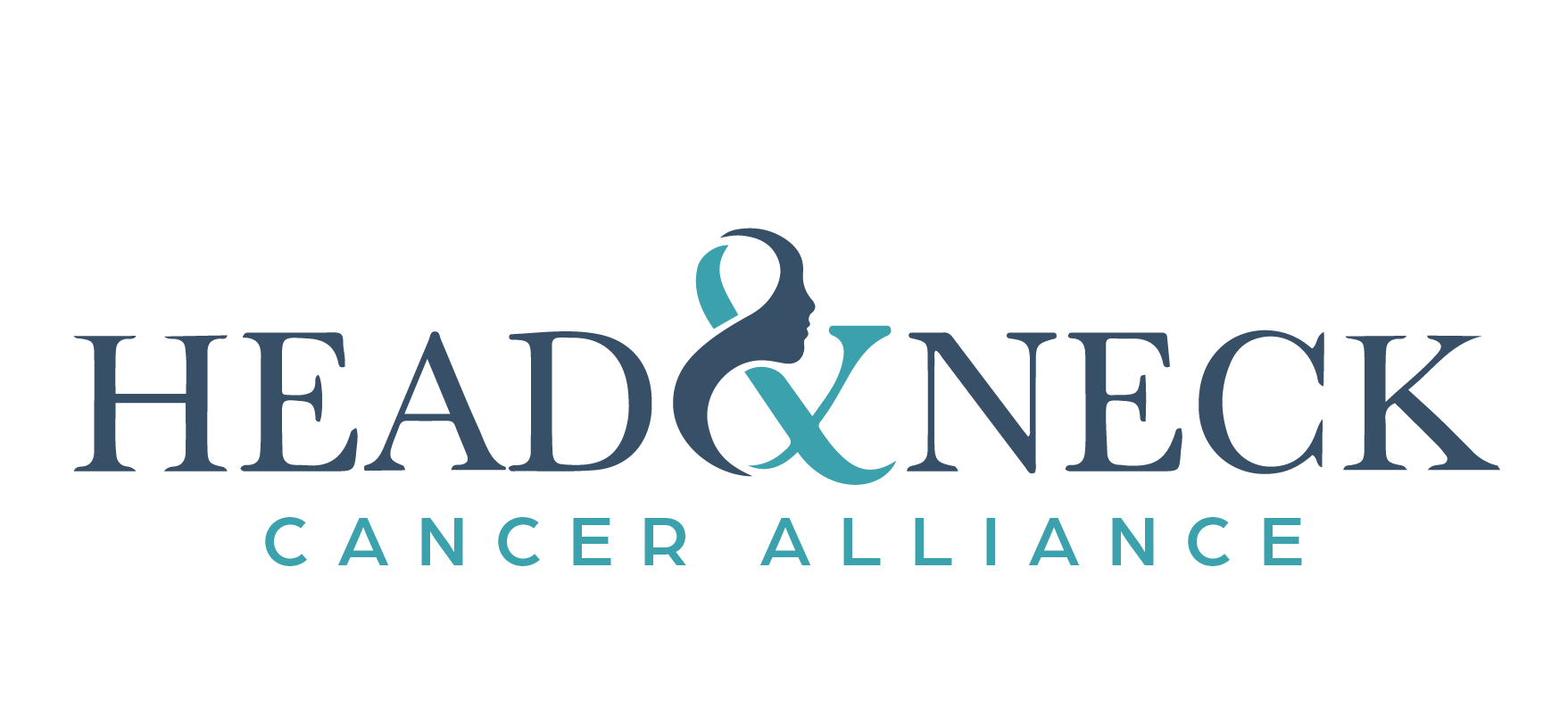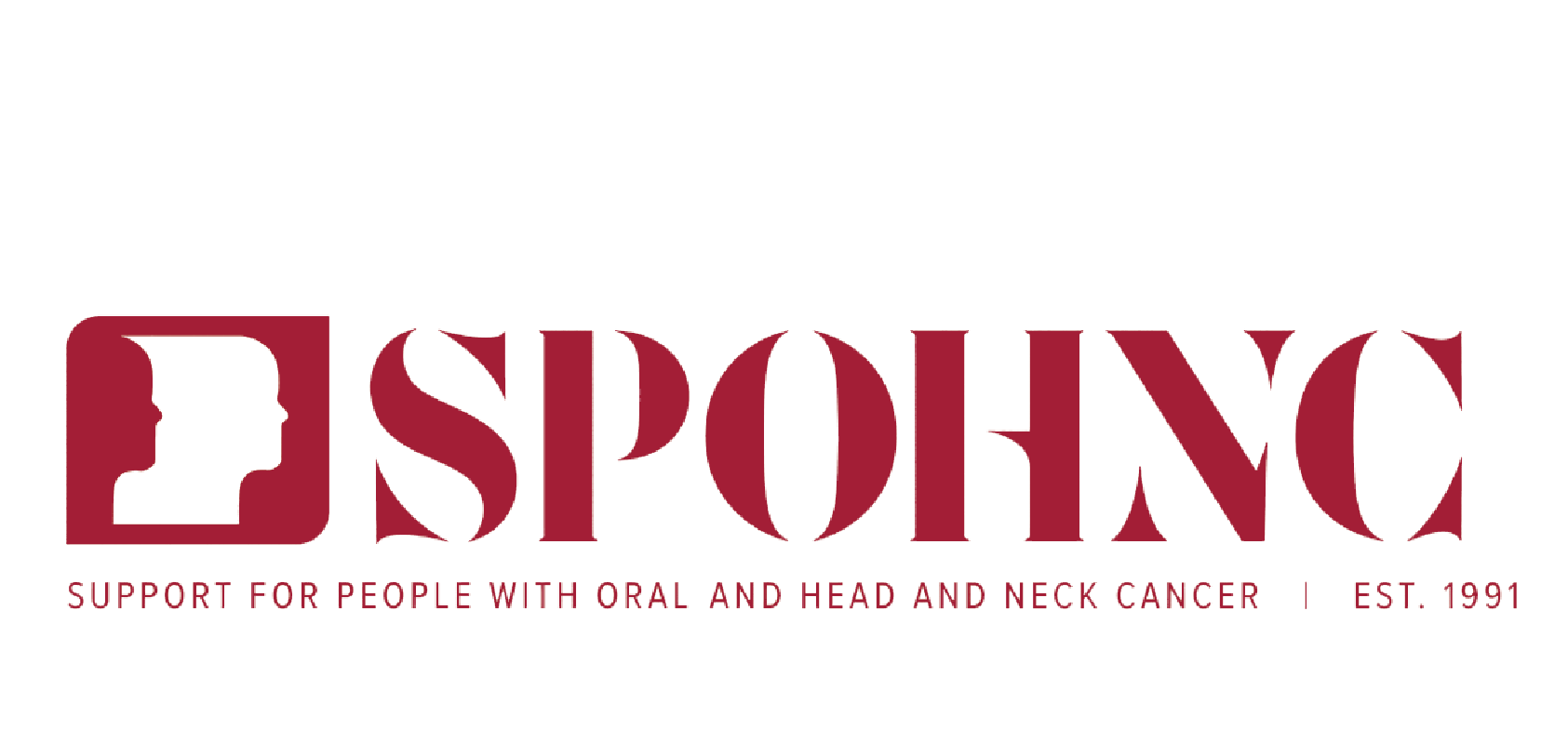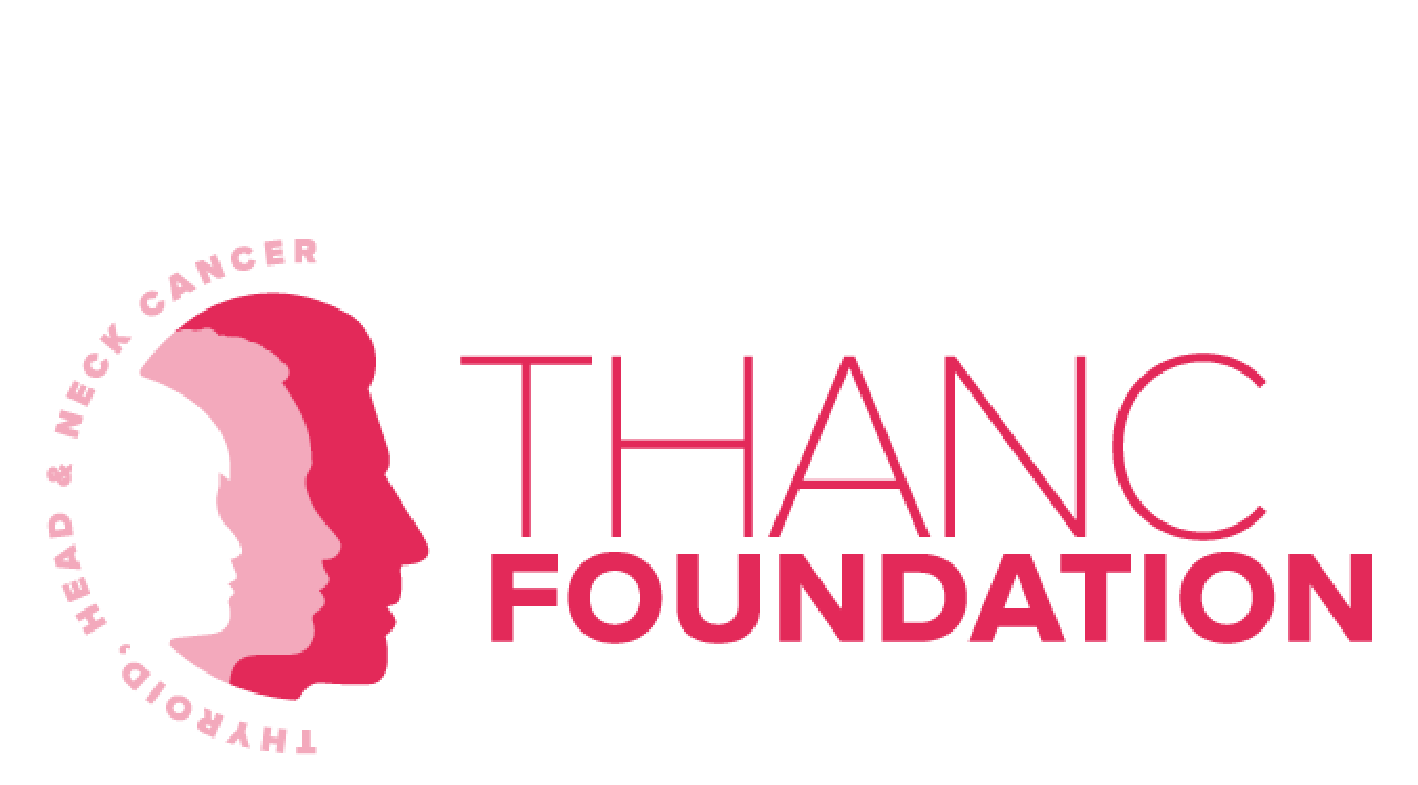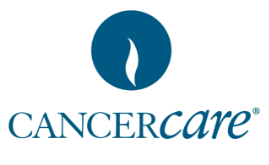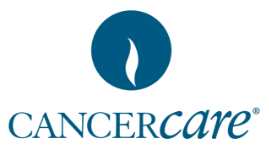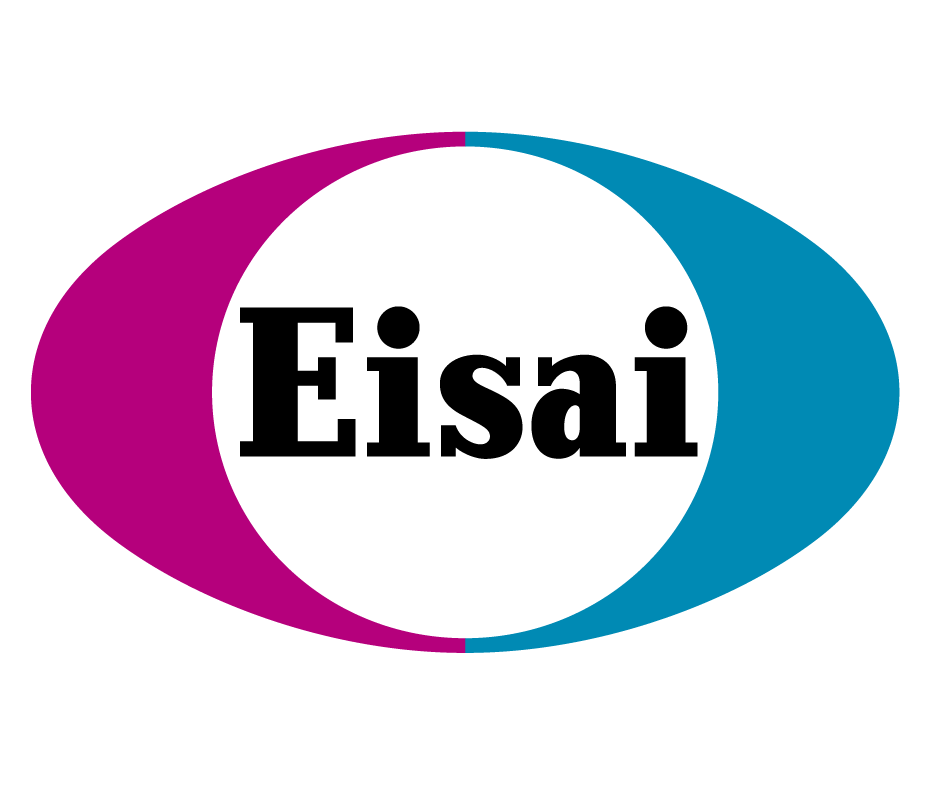
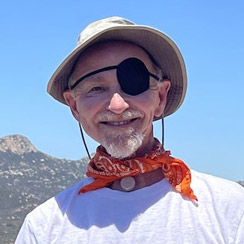
Bill B.
Bill used his passion for filmmaking to tackle a deeply personal topic: the experience of life after a laryngectomy

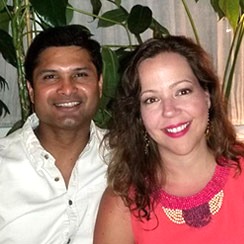
Ashwin & Becky S.
Ashwin and his wife Becky gained new perspective and realized the value of traveling with family after living through HNC

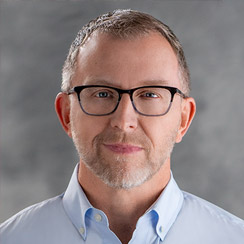
Steve H.
After going through grueling treatment to treat his HPV-related HNC, Steve says that having been in good shape was a big aspect of his ability to get through it

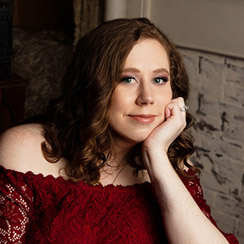
Cindy S.
As a young adult with cancer, Cindy’s strategic and creative thinking helped her discover that the littlest things are what make getting through HNC achievable

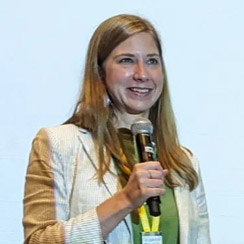
Allison B.
Allison’s honesty of what it’s really like to be a caregiver of someone with HNC is the focus of her podcast, “In Sickness”

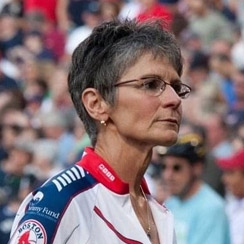
Denise D.
Denise harnessed the power of positivity to see her cancer experience as an opportunity for spiritual growth, and she lived to tell the tale in a book she wrote about her experiences
Click on the hotspots to discover six unique and inspiring stories of people impacted by HNC.


How is Allison Made of More?
She’s a…
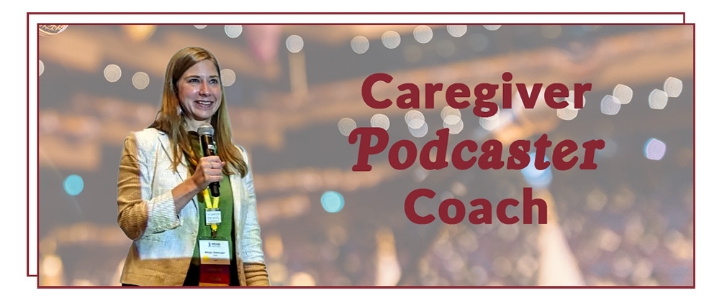
Meet Allison
Allison was no stranger to the role of caregiver when her husband, Sean, was diagnosed with head and neck cancer (HNC) in 2014. Just three years prior, Sean was diagnosed with Fanconi anemia, a rare disease that can lead to bone marrow failure and a variety of cancers. At the time, Allison signed a contract vowing to care for him around the clock for 100 days after he received a bone marrow transplant. Their journey, and her role as caregiver, would end up lasting far beyond that.
Looking back, Allison remembers the day before one of Sean’s surgeries to have part of his tongue removed as the moment she realized they were about to embark on something harder than anything else they had ever experienced as a couple. Sean would have to relearn how to talk, swallow, and eat at the age of 37, so Allison decided to take a leave of absence from her job to dedicate herself to being Sean’s caregiver.
An impactful realization
While Allison focused on caring for and being a partner to Sean while they raised their daughter, she began to recognize that many caregivers in similar positions may feel overlooked and unsupported. Building upon her and Sean’s combined career experience in education and nonprofits, she started The Negative Space—a nonprofit that equips caregivers with tools and strategies they can use in their day-to-day lives and educates those who support them. By 2021, Allison quit her job to pursue and develop The Negative Space full time.
While balancing caregiving, work, and parenting, Allison also realized that when she was transparent with others about what she and her family needed, most people were willing to lend a hand. “Openness about struggles has been a huge part of having such a strong support system,” she says.
The importance of forging connections
Since the HNC community is so unique, Allison emphasizes the importance of connecting with other caregivers and survivors through online resources and support groups. “People often think that when you’re done with your treatment, you’re fine,” she says, “They don’t think ‘Oh, there are some issues that you may have to deal with forever.’ So, I think it’s important to have people who get it and have been there to learn from.”
Most of all, Allison wants other caregivers to know they can think of themselves as more than just someone who provides care. “We’re part of the story too. We’re a huge part of this.” Even though caregivers may feel that the focus should be on the person with cancer—and to acknowledge what they’re going through is difficult—it’s important to acknowledge the caregiver role and the effort it takes. “This is hard, and we’re allowed to say that it’s hard.”
#MoreThanHNC
Through The Negative Space, Allison has transformed her openness about caregiving into her life’s mission and created a space for other caregivers to feel seen, honored, and supported. The Negative Space offers curated care packages, education and peer-to-peer coaching, a blog, and a podcast called “In Sickness” that speaks to the realities of caregiving for her spouse.
Allison hopes her honesty will give others the boost they might need to take the brave step of admitting how challenging it can be to care for someone living with HNC or other difficult diseases. She’s also quick to emphasize the importance of finding small but meaningful ways to take time for oneself. Allison personally engages in daily practices of yoga and meditation, stressing that scheduling time to do something for yourself is a crucial aspect of maintaining your own sense of balance and health while caring for others.


How are Ashwin and Becky Made of More?
They’re…
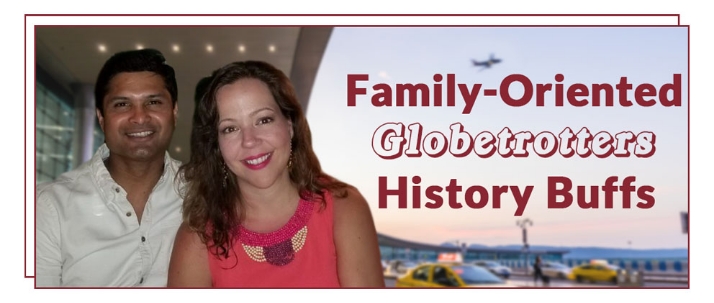
Meet Ashwin and Becky
Ashwin and his wife Becky have both gained a new outlook on life after their experience with head and neck cancer (HNC). Previously a self-proclaimed workaholic, Ashwin now believes in work-life balance, finding more meaning in family road trips through Europe with their teenage children. Ashwin’s HNC diagnosis forever changed both of their lives—and provided both Ashwin and Becky a new perspective on work, family, and what’s truly important in life.
A life-altering diagnosis
In 2015, Ashwin noticed a wound on his tongue that wasn’t healing properly, so he visited an oral surgeon to have it biopsied and was subsequently told everything was fine. Ashwin’s wound still hadn’t healed four years later, and Becky suspected something was wrong when she noticed he was avoiding eating certain foods that were causing discomfort and pain. Becky, who works at a dental practice as a registered dental assistant, encouraged Ashwin to follow up and get a second opinion, and this time the prognosis was clear: cancer. After meeting with several head and neck surgeons to explore Ashwin’s treatment options, Ashwin opted for a surgery to remove the cancer, part of his jaw and reconstruct his tongue.
The road to recovery
Ashwin remembers having a swollen face, incisions on his neck, arm and leg, and most importantly, an inability to speak during the seven days he spent in the ICU following his operation. He recalls waking up from the surgery and thinking “Who am I?” Through it all, Becky was at his side, confidently playing the role of caregiver. She learned how to communicate with him when he couldn’t talk, and she spent 24 hours a day by his side. “Every single day felt really long, and if Becky wasn’t there, it would’ve been very, very tough for me. I’m ever grateful for her, what she did,” Ashwin said. During recovery, Ashwin worked diligently with a speech pathologist to reach his goal of speaking without an impediment so he could continue to confidently conduct highly interactive client meetings and deliver crucial presentations across the U.S. and abroad as part of his job.
Reflecting on the journey to diagnosis, they each wish they had been more proactive. Although Ashwin was fortunate that his cancer was early-stage and he didn’t have to receive chemotherapy or radiation, the four years between his first biopsy and his eventual diagnosis sticks with them both. Becky recalls advocating for Ashwin when making appointments, and insisting he needed to be seen by doctors to finally have it re-biopsied. “You definitely have to be proactive and diligent,” she said.
#MoreThanHNC
Today, they both reflect on how much their lives have changed—not just because Ashwin had HNC, but because of the perspective it gave them on how to live. Now Ashwin thinks of his health and the health of those around him as his main priority. Together with Becky and their children, they also spend more time researching the histories of planned destinations on their next European road trip, and enjoying the historical and architectural aspects of visiting interesting places abroad.
Ashwin urges others with HNC to be hopeful, try to gain perspective and keep a positive mindset: “You’re not alone. Trust everything will be alright and trust your doctors.” Reflecting on the experience, he said: “Don’t wait for things to happen. Life is too short, things come at you at great speed, take every opportunity you have to live your life to the fullest and do what you love to do.”


How is Bill Made of More?
He’s a…
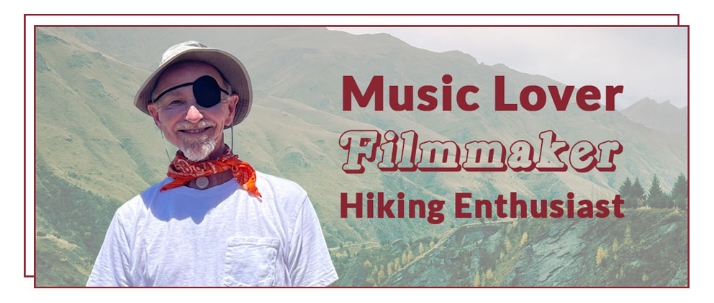
Meet Bill
As Bill reflects on his experiences with head and neck cancer (HNC), there is one theme he keeps coming back to: focus on doing the things that bring you joy, and the rest will follow. For Bill, a seasoned documentarian, that meant filmmaking.
During his recovery, Bill turned the camera on an incredibly special choir of singers who all shared one thing in common: like him, they had each had a laryngectomy, which is a surgery that removes the voice box (larynx). A laryngectomy alters functions that most people take for granted—like speaking, breathing and swallowing, and laryngectomized persons must permanently breathe through a surgically created neck stoma.
Inspired by the choir members’ fortitude and strength, Bill recognized the ways their stories express how life is not over after a laryngectomy—just different. The resulting film is one of his latest documentaries, "Can You Hear My Voice".
Life after a laryngectomy
Eighteen years after his initial surgery and radiation to treat his HNC, Bill’s doctor encouraged him to undergo a laryngectomy to improve his quality of life once it was clear that Bill’s larynx was losing its function. At the time, Bill was experiencing labored breathing, which his wife could hear from other rooms of the house, and he could barely speak at levels above a whisper.
In the months following his surgery, Bill found himself wanting to isolate—embarrassed of what others might think or say now that he no longer had his natural voice. “I was saddled with insecurity and fear and doubt. I didn’t want anyone to see me or hear me, I was embarrassed by my appearance and the way I sounded,” he recalled. He struggled with the idea of returning to a life of normalcy, and there were days when it felt like too much to bear.
Fortunately, Bill’s mindset changed with the encouragement from his family, friends, and medical team. He slowly mastered speaking with the aid of a voice prosthesis during weekly speech therapy sessions, and adopted daily stretching exercises from his physical therapist as he began an intensive daily walking regimen. He ate a healthier diet, practiced mindfulness, and, with the help of two support groups, found strength. “Slowly, I regained confidence and realized my life was not over, it was just changed,” he recalled.
When Bill's surgeon suggested he make a documentary about the psychosocial aspects of living with a laryngectomy, his research uncovered the Shout at Cancer choir in the UK. Comprised primarily of people who had laryngectomies, the choir uses singing techniques to help improve breath control, vocal pitch, and strength, thereby improving confidence and self-image among its members. Bill quickly bonded with these individuals, who had all gone through the same surgery he had, and found himself inspired by their hope, determination, and resiliency.
"It's easy for a person with visible disfigurements or audible imperfections caused by their treatment to want to retreat from society," Bill admitted. "In making the film, I wanted to encourage people struggling through the dark periods of recovery to hold on," he stressed. "There is a high possibility of leading a productive and joyful life after laryngectomy and head and neck cancer."
Finding support
Humbled by others’ recovery experiences, Bill emphasizes that he’s not special: “It’s not because I’m the least bit extraordinary. I think it’s because I’m like most people—we all are stronger and more resilient than we know, and it takes the right people around you to help you find that inner strength.”
#MoreThanHNC
These days, Bill enjoys going on long hikes, attending live concerts, and spending time with his grandkids. He reflects on how far he’s come, from being able to walk just a half block before getting winded to now hiking four miles most days. “Fighting cancer is a battle,” he said. “But I firmly believe that victory should be measured not by how long we live, but by how well we live.”


How is Cindy Made of More?
She’s a…
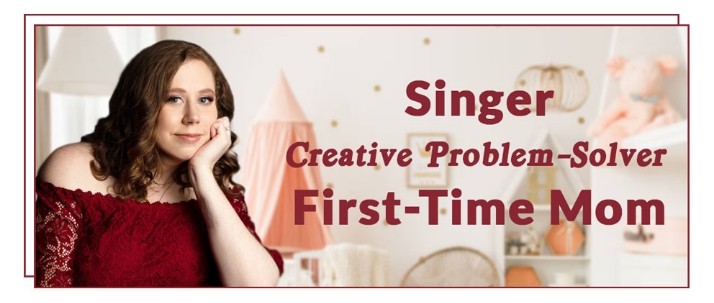
Meet Cindy
Cindy has always been a self-proclaimed creative problem solver. Anything that needs solving—whether it be a complex puzzle, board game, escape room, or a cancer diagnosis—is something Cindy has taken on with exuberance and a can-do attitude.
Cindy was just 27 when she noticed a sore on the side of her tongue that wasn’t healing. Neither she nor her dentist thought it could be cancer—she was too young and didn’t have any of the risk factors. Her dentist referred her to an oral surgeon for a biopsy, and they discovered she did indeed have head and neck cancer (HNC), and that it had spread to her lymph nodes. “I felt blindsided,” she says, remembering the day she went in for what she thought was a routine visit, but instead received a cancer diagnosis. Two weeks later, she was undergoing surgery to remove parts of her tongue and lymph nodes.
Although she went through a lot during her treatment—which consisted of 33 radiation therapy sessions, an infection, and an allergic reaction to antibiotics that landed her back in the hospital—Cindy stayed optimistic. Three months post-treatment, she resumed her MBA program, returned to work, and joined a local choir. It was life as usual for two years, but then her cancer returned. Shortly after her 30th birthday, she underwent aggressive surgery to remove the cancer and reconstruct part of her tongue.
Taking it one day at a time
Like many others with HNC, Cindy struggled with simple tasks after surgery, like swallowing and eating. “I had a lot of goals—a lot of hopes for the future,” she recalled. Cindy stresses the importance of taking things one day at a time. One of her nurses suggested she reframe her thinking to focus on one thing she could do today that would make tomorrow a little bit better. For Cindy, that meant “sometimes just eating six bites of applesauce instead of five.” During her journey toward a full recovery, she accredits that nurse with helping her get where she is today, able to speak normally again thanks to taking every day one day at a time at speech therapy.
Cindy became more active in HNC-related Facebook support groups after her cancer returned and found that connecting with other people going through treatment to be invaluable. “No one understands how awful your mouth and throat feel during radiation unless they’ve actually been through it,” she said.
Being a young person with cancer
Since Cindy’s radiation treatments affected her thyroid function, she experienced fertility issues while trying to get pregnant. But after undergoing IVF treatments, she and her husband welcomed their first child in February 2023. She is passionate about sharing her experiences with other young adults, as she feels there isn’t enough information available for younger patients who may experience fertility issues after treatment like she did.
#MoreThanHNC
These days, Cindy is singing again—in as many as three choruses depending on the season—and takes pride in frequently using her strategic and creative thinking for things other than cancer. Recently she’s been focused on mastering complex board games, and often enjoys the challenge of escape rooms with her husband and friends.
Although some days it may have felt impossible to keep going, Cindy has never given up. “Things might be more challenging, but there’s a lot of really happy, exciting, great moments that might happen on the other side of this, you just have to get through it.”


How is Denise Made of More?
She’s a…
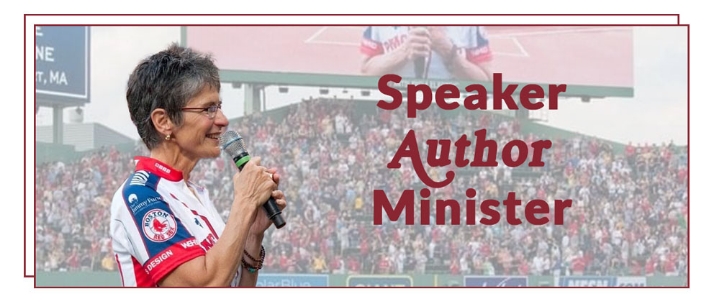
Meet Denise
Denise proudly wears many hats. Throughout her life she has been a singer, writer, cyclist, minister, healer, caregiver, podcaster, and, most recently, owner of a small boutique travel company sharing tours to her beloved Tuscany, Italy. She has always been a ray of positivity through moments of darkness, and her infectious positivity was a cornerstone during her head and neck cancer (HNC) diagnosis and treatment. She firmly believes in manifesting your desires through the power of positive thinking.
When Denise found out via exploratory surgery that a lump on her neck was Stage 4 cancer and she potentially had only three months to live if she didn’t take immediate action, she told herself “I don’t just have cancer, I have an opportunity.” Indeed, Denise’s story turned out to be an opportunity in many ways: for her to write and publish a book, for her to deepen her sense of spirituality, and for her to share her journey with incredible people who walked alongside her every step of the way.
At the time of her diagnosis, Denise was one week from her 50th birthday. She had a full-time job, was on the board at her church, had a private healing practice offering Reiki and reflexology and was often found sitting among friends playing her guitar and singing for them. She was also riding her bicycle, training long distances for an upcoming fundraiser for children with cancer. In her own words, “I didn’t have time for illness.”
Storytelling in recovery
Denise immediately had a feeding tube inserted during her first surgery, which remained for nine months. The tube was removed a few months post her second surgery, a radical neck dissection, that removed the left side of her neck. Her doctors warned her that speaking could be difficult and that her singing voice might never return. During that period, she realized the power of social media after setting up a page on Care Pages—a blog-style platform for people with cancer—where she chronicled her day-to-day experiences with HNC. After gaining a substantial number of followers and realizing there were people out there eager to hear her story, she decided to begin the process of writing a book about her journey.
Following a few attempts to get her book published, Denise forged a fortuitous connection with a woman from North Carolina who provided a place to stay while Denise focused on nothing but her writing. Denise moved herself from Boston to NC and nine months later, her first book was published. Her story has been made into a documentary by the same name.
#MoreThanHNC
Turns out, Denise’s singing voice did return. The title of her book reflects an incredible experience she had just 22 months after her diagnosis, when she sang the National Anthem to a sell-out crowd of 37,000 fans at Fenway Park. A month after that, she pedaled 87 miles in one day, raising thousands of dollars for children’s cancer research.
Denise’s story is undoubtedly one of bravery, positivity, and resiliency in the face of immense adversity. When asked what she would tell someone who had just received an HNC diagnosis, she firmly answered, “You didn’t do anything wrong.” She says that when you have HNC, or any type of cancer, it’s important to give yourself permission not to battle, but to use what little energy you may have to love yourself more deeply and take a gentler approach to healing. She firmly believes that challenges (like a cancer diagnosis) are doorways of transformation, and after experiencing her own, she was transformed.


How is Steve Made of More?
He’s a…
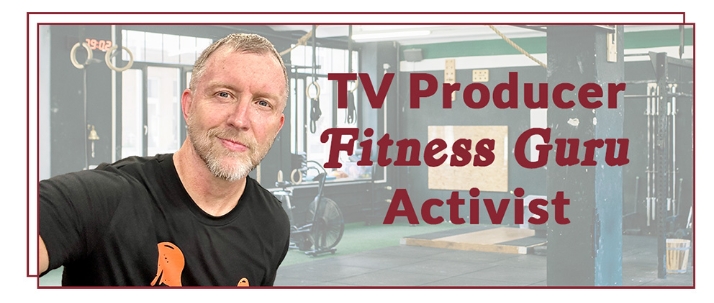
Meet Steve
Steve has always been focused on his health. An avid fan of fitness and eating well, he spends a lot of days in the gym and enjoys competing in Spartan races, testing his ability to push beyond his physical and mental limits.
As a former TV news producer, Steve is also a natural storyteller who happened to live through a story that would test his physical and mental limits in a whole new way. “My whole life and career has been storytelling,” Steve says. “I know the power of how one person’s story can make a difference to others.” But those stories had always been someone else’s—and before his diagnosis with HPV-related head and neck cancer (HNC), Steve had no way of knowing that the most important story he would end up telling would be his own.
A diagnosis worth talking about
In May 2017, Steve discovered a lump on his neck as he was shaving that had seemingly appeared overnight. He acted quickly to meet with his doctor who referred him to an ear, nose and throat (ENT) doctor to remove and test what he thought was a cyst. A few days later, Steve was informed that the mass was cancer caused by HPV, which would require treatment with chemotherapy and radiation.
One night during his treatment, Steve came across a nightly news segment featuring the story of an HPV-related HNC activist, and was buoyed knowing there were other men out there in similar situations. “Just knowing that Jason and seven million other men in this country have dealt with what I was facing was a kind of comfort,” he recalls, and Steve felt inspired to share his story to a broader audience, too.
#MoreThanHNC
Steve had previously been working as an Executive Producer for a morning show on FOX 11 Los Angeles. Just three weeks after finishing treatment, Steve appeared on the show to share his own story.
Prior to his diagnosis, Steve thought HPV-related cancers primarily affected women, since the first HPV vaccine was originally approved to protect women from cervical cancer. He hopes his experience can serve as a wakeup call for others to talk to their health care professional about getting themselves, as well as their sons and daughters, vaccinated against HPV.
“Now, every chance I get, I post on my social media: don’t forget to get your sons vaccinated against HPV, as well as your daughters,” Steve says. “If one boy out there gets the HPV vaccine because of my story, it might just save his life.”
What is Made of More?
Made of More is an initiative created by Head & Neck Cancer Alliance, SPOHNC, THANC, CancerCare, and Eisai Inc. to help people affected by head and neck cancer (HNC) feel heard and supported as part of a broader community.
Those who experience HNC are made of more than just their disease. Although they may face many difficult challenges, people with HNC and their loved ones are resilient—and they have important stories to tell. On this site, you’ll find personal accounts of those impacted by HNC, as well as useful resources and information to help others navigate their own experiences with HNC.
Explore resources for the head and neck cancer (HNC) and thyroid cancer (TC) communities

Want to learn more about HNC?

Want to learn more about TC?



